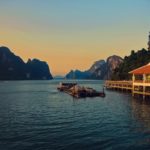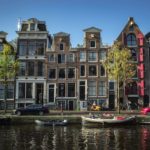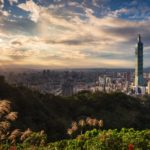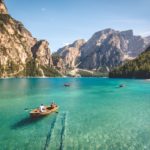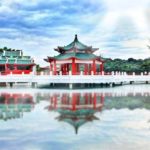Understanding Taiwanese Identity: A Conversation with Dr. Pei-Ju Mona Wu
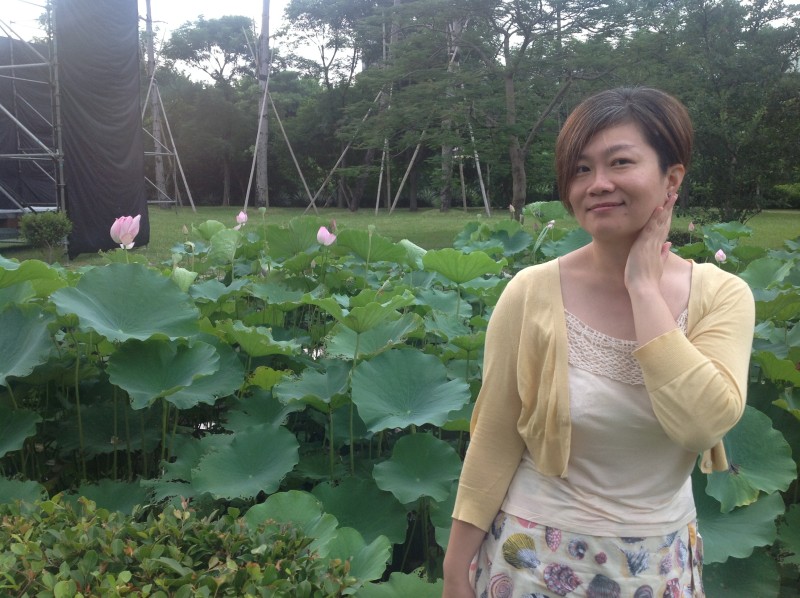
Dr. Pei-Ju Mona Wu of Nantou, Taiwan tells some of her travel experiences, discusses the multifaceted Taiwanese identity, and how travelers to the island of Taiwan can participate and learn from this incredible culture. A professor of comparative literature at National Chung Hsing University in Taiwan with research interests in subjects including travel literature and transnational literature, she is a fascinating person with great insight on the human experience of traveling.
What are some of the places you have travelled to?
My first backpacking trip was when I was 13 years old, and I traveled around Taiwan. My first round-the-world trip was when I was 18, where I spent 3 months going from Taiwan to Hong Kong, Malaysia, and Europe. I have traveled mostly in the Northern Hemisphere, also including the US and Scandinavia. I’ve also spent a lot of time in Germany.
What is an interesting story about your travels?
I went to Jordan in 2001 or 2002. I knew no Arabic, had no idea about Jordanian culture, and most of my family and friends forbid me from going. I persuaded them it was not so difficult or dangerous, and I got to meet up with some old Fulbright classmates. It was one of the most beautiful and exciting experiences I have had. Hillary Clinton was also visiting Petra at the time I was there. So the traffic was terrible and all of the hotels were booked! It felt like there were invincible spirits that live in Petra. One night I felt a spirit touch me all over my body. I didn’t open my eyes because that’s kind of weird to do, but I started trembling. I wasn’t afraid, just felt different, a kind of intimacy with the place. Taiwanese people love to tell ghost stories, so this is kind of my own ghost story. But the whole experience was wonderful, the camels, walking around Petra, seeing the Dead Sea.
I loved the video series you recommended, “Taiwan Bar.” What stands out to you about that series?
It makes Taiwanese history more accessible to people, using skits and animation in very creative ways. It simplifies very complicated contents and makes it good for those who don’t know much about Taiwanese history. The creation of characters like the fish and the bear make it seem like a puppet show, bringing people back to more traditional types of storytelling. The bear is a special species unique to Taiwan, and is endangered actually.
Themes of preserving Taiwanese identity and culture seem very common in daily life here. Would you say a main part of that is emphasizing Taiwanese uniqueness in comparison with Japanese or Chinese identities?
It is important to know you are different from other Asian countries, but rediscovering the post-colonial identity brings people living here to rethink the sense of belonging. The “what does it mean to be Chinese-Taiwanese” (and all these hyphenated identities) question is really important. Historical events are links to these, and so many people have different ways of tracing back and deciding if they will stay in Taiwan or return to some other place, or move on.
It is important to look beyond the political and historical context; the cultural aspects really need to be included. This means using political and historical methods in combination with sociological ones to define the self. The government talks about reunification (with Mainland China), but for scholars and people living on this island, they need to put a finger on a goal or identity, but what is it? Taiwan Bar gives awareness to heavy topics on identity. We’re not going anywhere and not quite sure what to do. Internal awareness of uniqueness is necessary for today’s Taiwanese people to find a negotiable position with the rest of the world.
What are ways that travelers can help with the Taiwanese drive to rediscover and preserve this identity?
To really participate or understand, you can’t just come and go in a week. Stay for longer, and participate in all aspects. For example join the Matzu pilgrimage that happens every year, go to festivals (not simply religious, also folk festivals), study Taiwanese (distinct from Mandarin), and enjoy cultural events. There is an indigenous center in Nantou that is really incredible. Also, spend a few weeks bicycling around the island. Or go mountain climbing! For people interested in mountain climbing, in Taidong from December to January there is a harvest festival with the Bunun tribe, or go to Taroko Gorge to spend time with the Taroko tribe. Many tribes are encouraging both travelers and Taiwanese locals to come stay with them and learn. In Nantou alone, there are more than 5 or 6 tribes. After the year 2000, the Taiwanese government started to promote indigenous culture, so different tribes can apply for grants for education programs.
One of your specialties is travel writing. What do you look for in a good travel narrative?
Getting to know people, their philosophy, and how they get to know themselves. So self-discovery. I really love learning how people learn from their surroundings, make peace with themselves and the world, what a sense of home means. There are lots of traumatizing events in comparative literature that are studied, but travel literature gives different experiences and a deeper knowledge of the self and what to do with that knowledge – life like a dream. Soul Mountain by Gao Xingjiang is a really wonderful story, it gives a historical awareness of China. In it, life is like a dream. The narrator has to go through the past to know the future. Travel writing is a very important practice. Somehow writing about it makes it much more difficult to get to know a place, but allows you to learn so much more than from just reading about it.
Photo by Dr. Pei-Ju Mona Wu.

